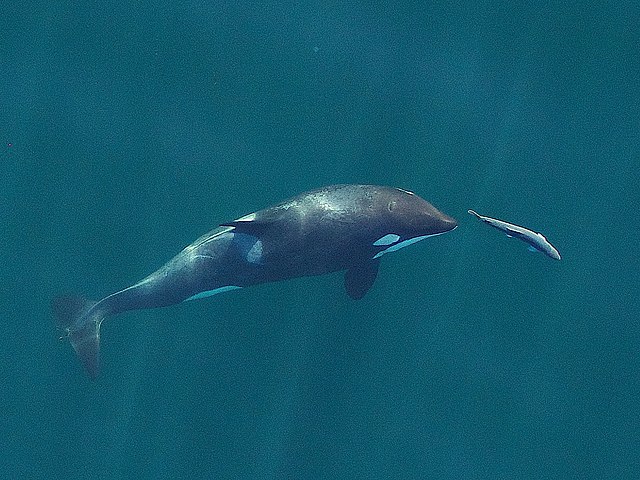News release
From:
Menopause in toothed whales — such as killer whales, beluga whales and narwhals — may have evolved to increase total lifespan, suggests a paper published in Nature. The findings suggest that menopause evolved to enable females to help younger generations survive, without competing with daughters or granddaughters for mates.
Menopause is a very rare phenomenon and understanding how and why it has evolved remains a long-standing question. Female humans are the only land mammals known to have evolved an extended post-reproductive lifespan, but menopause is known to have evolved multiple times in toothed whales. While progress has been made in understanding the adaptive value of menopause in humans, the generality of these findings to other species remains unclear.
Samuel Ellis and colleagues assembled and analysed a new comparative database to test competing evolutionary hypotheses of menopause in toothed whales. They suggest that it evolved by females extending their lifespan without increasing their reproductive lifespan. Menopause offers females opportunities to help other younger generations in their families and improve their chances of survival, such as sharing food, ‘babysitting’, helping the group when resources are short and protecting their sons. Menopause increases their lifespan overlap with their grandoffspring and offspring, without increasing their reproductive overlap with their daughters to avoid reproductive competition.
The results suggest that menopause evolves when there are benefits to the species. Despite the obvious differences between whales and humans, the convergent evolution of menopause offers new insights for understanding the evolution of menopause in general.



 International
International


